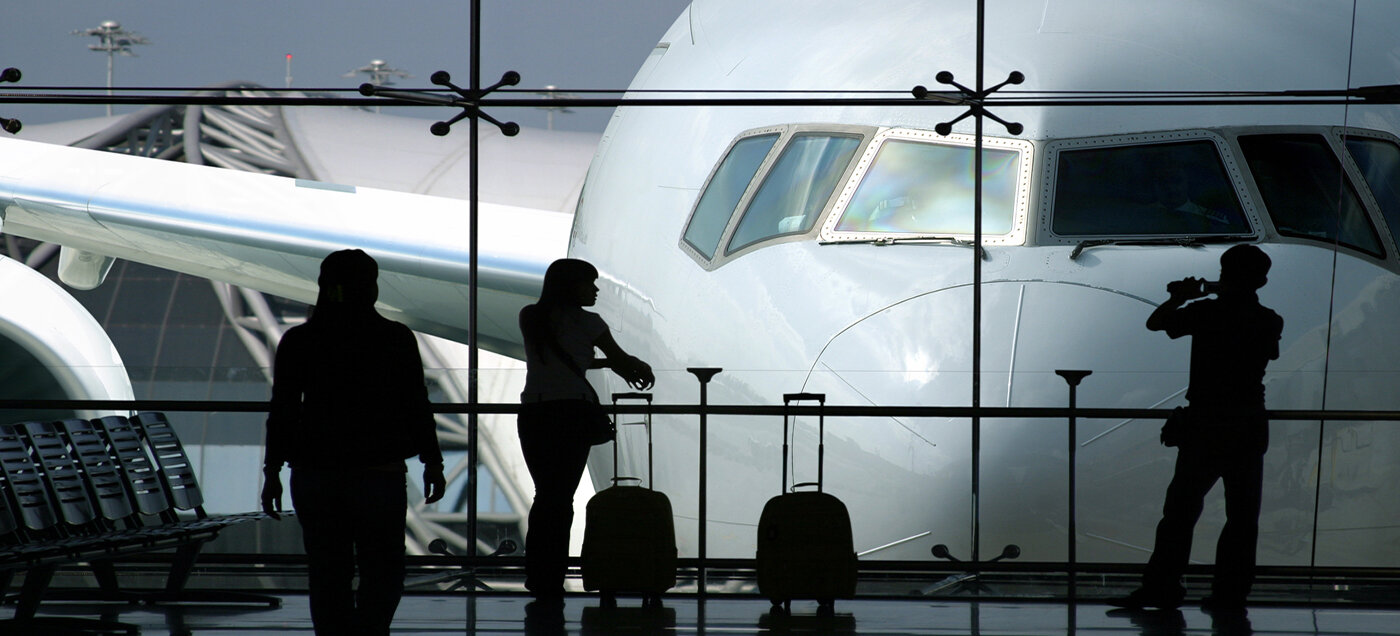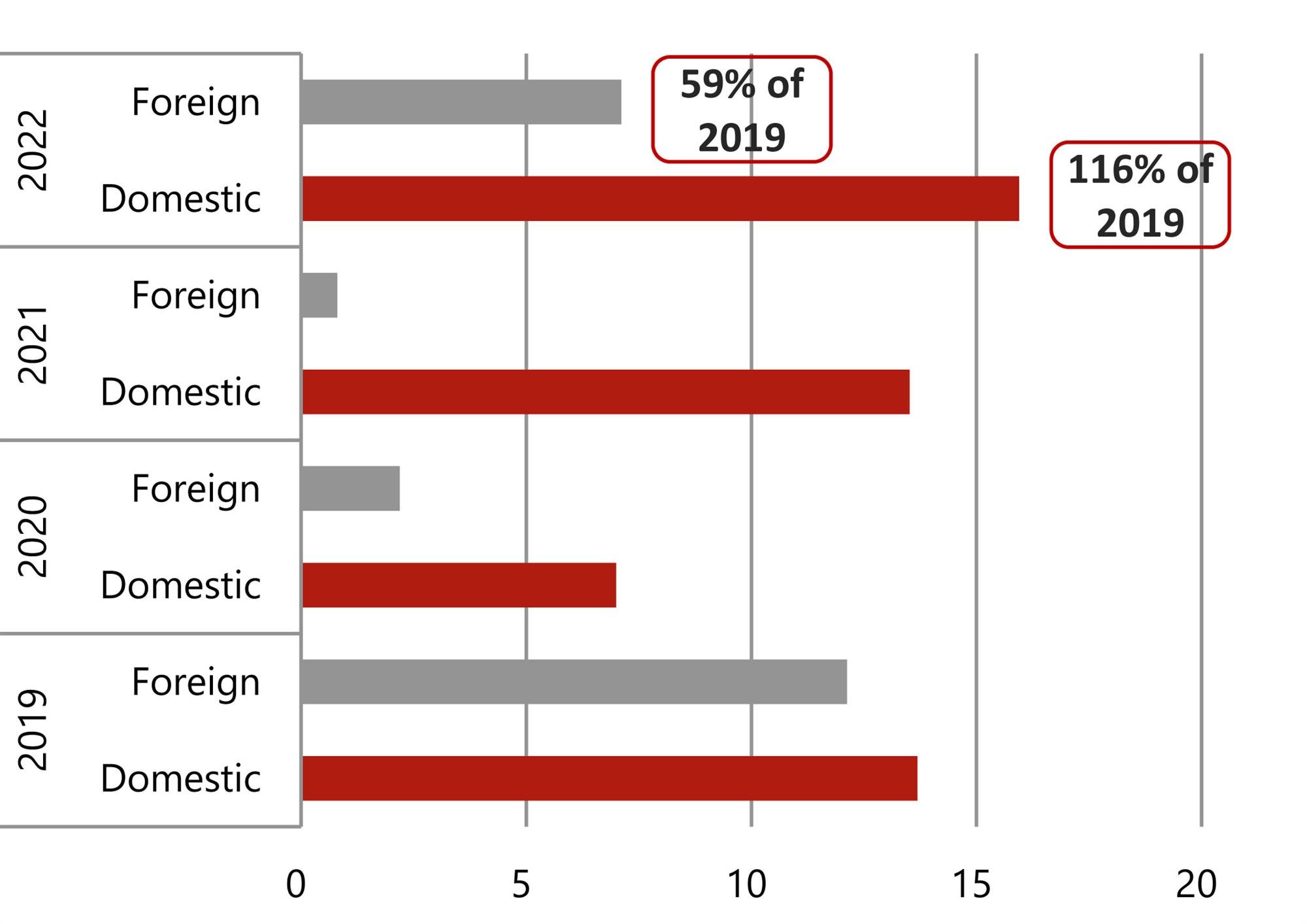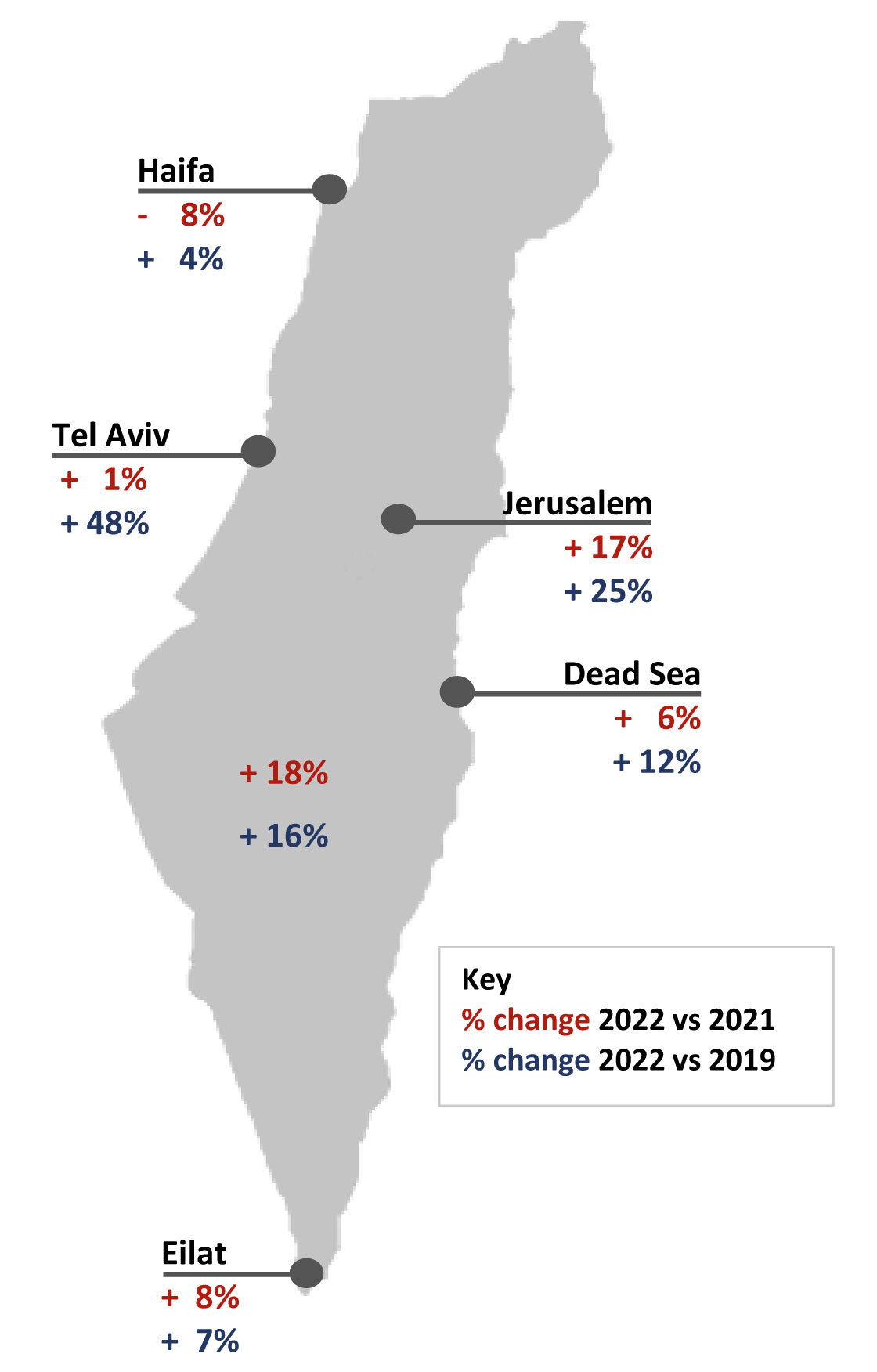Vacation Real Estate News

Israel Hotels Poised for Growth as International Visitors Set to Return
Vacation News » Jerusalem Edition | By Michael Gerrity | June 19, 2023 8:32 AM ET
According to international hotel consultant HVS, Israel's domestic tourism market has been its saviour, with growth last year in excess of pre-pandemic levels, while international visitation is set to continue to improve leaving the country's hotel sector showing 'great promise', according to our latest report.
At 69%, domestic tourism dominated the share of hotel room nights spent in Israel in 2022, and it's expected that foreign travellers will soon regain their share of around 47% and more based on marketing efforts, the attraction of certain cities and regions, and the impact of the Abraham Accords peace agreement aimed at boosting tourism between member countries.
The Israeli economy, according to HVS' Israel Hotel Market Overview 2023 - Recovery in Progress, has exhibited a robust recovery following the COVID-19 pandemic, helped in part by a successful vaccination campaign. The country's resilient economy, boosted by sectors such as technology, industrial manufacturing, energy and financial services, has also demonstrated strength in the face of the repercussions of Russia's war with Ukraine.
'Israel's existing hotel supply has experienced a strong recovery post-pandemic, particularly in the second half of 2022, with performance back to pre-2019 levels or higher,' said report co-author Charles Carpentier, senior associate, HVS London. 'This has had a positive impact on hotel values in Israel, which our figures show are just 1.4% over 2019 overall, in nominal terms, compared with 8% across Europe. This has largely been due to strong performances from destinations such as Eilat and the Dead Sea, although values in Tel Aviv and Haifa are around 8% below 2019 levels owing to the heavy reliance on international visitors in these regions.'
HVS further reports Israel's hotel industry has also benefited from increased levels of investment, with new developments receiving grants of up to 20% of development costs. Before the pandemic, the country's hotel pipeline was at record levels with most of these projects still moving forward, despite delays, amounting to several thousand new rooms set to come on stream, with strong representation from international operators and brands.
Travel and tourism makes a significant contribution to Israel's GDP, although the Abraham Accords peace agreement, which includes Israel, the UAE, Bahrain, Kosovo, Sudan and Morocco, is expected to improve the flow of inbound tourists from these countries. HVS's report says that significant progress has been made in the first two years since the signing of the Accords, particularly in improving diplomatic relations between member countries, evident in the opening of various embassies and the appointment of ambassadors.
'The Israel hotel market is well-positioned for further growth and success, and hotels show great promise as the government's commitment to attracting international and regional tourism as well as retaining domestic visitors remains steadfast,' commented Russell Kett, chairman, HVS London and report co-author.
'The Abraham Accords have created a historic opportunity to grow the sector and improve Israel's GDP and tourism's prominence within the economy. It's important this momentum is carried forward, particularly easing the visa situation and the development of a robust marketing plan for each member nation.'
Sign Up Free | The WPJ Weekly Newsletter
Relevant real estate news.
Actionable market intelligence.
Right to your inbox every week.
Real Estate Listings Showcase
Related News Stories
Vacation Real Estate Headlines
- Despite Geopolitical Uncertainty, European Hotel Values Rise
- Record 119 Million Americans Traveling Over the Christmas Holidays
- 80 Million Americans to Hit the Road, Skies and Seas for 2024 Thanksgiving Holiday
- Asia Pacific Hotel Investment to Exceed $12 Billion in 2024
- Asia Pacific Hotel Investment Tops $12 Billion in 2024
- Seattle, Orlando and New York Top Labor Day Destinations in 2024
- Record 71 Million Americans Traveling Over July Fourth Week
- Major Hotel Operators Expanding Rapidly Across Asia Pacific in 2024
- 44 Million Traveling Memorial Day Weekend, Second Most in History
- South Korea is Asia Pacific's Top Performing Hotel Market
- Florida Dominates Top 10 U.S. Cities List to Invest in Short Term Rentals
- Investment in South Korea Hotels Dipped in 2023
- European Hotel Values Still Below Pre-Covid Prices
- Over 115 Million Americans Traveling Over Christmas Holidays
- 55.4 Million Americans on the Move Thanksgiving Holiday
- Asia Pacific Tourism to Approach Full Recovery in 2024, Driving Hotel Sector Growth
- Asia Pacific Hotel Revenues to Rise in 2024 Despite Economic Volatility
- Tourist Bookings to Hawaii Down 50 Percent Since Maui Wildfires
- Demand for Vacation Homes in U.S. Hit 7-Year Low in August
- International Travel for Americans Jumps Over 200 Percent in 2023
- U.S. Labor Day Weekend Travel To Uptick in 2023
- Asia Pacific Hotel Investment Collapses 51 Percent in 2023
- As Summer Travel Season Winds Down, U.S. Gas Prices Rise Again
- Record Setting 50.7 Million Americans to Travel This July Fourth Holiday
- Israel Hotels Poised for Growth as International Visitors Set to Return
- Over 42 Million Americans to Travel This Memorial Holiday Weekend
- European Hotel Transactions Decline 18 Percent in 2022 as Interest Rates Surge
- U.S. Vacation Home Demand Dives 50 Percent from Pre-Pandemic Levels
- European Hotel Values Upticked 3 Percent in 2022
- U.S. Vacation Rental Bookings Rise 27 Percent Annually in January
- Third-Party Hotel Operators Set to Increase Across Europe in 2023
- 113 Million People Traveling in the U.S. During the 2022 Holiday Season
- London Hotels Set to Weather High Inflation in 2022
- Almost 55 Million People to Travel This Thanksgiving Holiday in America
- Düsseldorf Hotels Enjoy Growing Corporate Demand in 2022
- Global Hotel Investment Activity in Asia Pacific to Rise 80 Percent in 2022
- Japan Lifts Foreign Inbound Covid Travel Restrictions in October
- Demand for Second Vacation Homes in the U.S. Decline
- Amsterdam Hotels Enjoy Comeback Post Covid Travel Restrictions
- 47.9 Million Americans Will Travel This July 4th Weekend







